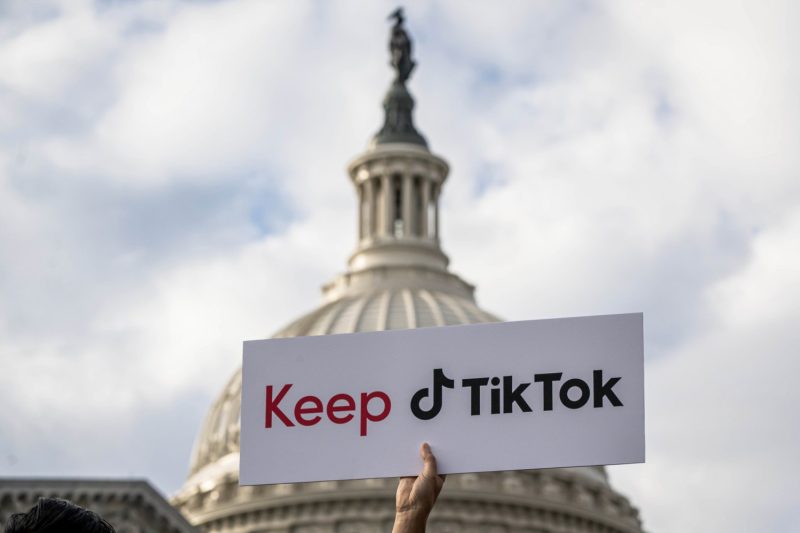In a recent turn of events, Congress has approved a ban on the popular social media platform TikTok, sparking a wave of reactions from users across the globe. While the decision has been made, it could still be years before the ban is fully implemented and takes effect. The complexities surrounding the ban’s execution highlight the intricate interplay of legal, technological, and geopolitical factors.
One significant hurdle in the path to banning TikTok lies in the legal realm. Despite congressional approval, any ban on a widely used social media platform requires a carefully crafted legal framework to withstand potential legal challenges. This framework must address issues related to freedom of speech, privacy concerns, and the platform’s impact on national security. Crafting such legislation demands thorough deliberation and input from legal experts, policymakers, and stakeholders to ensure its effectiveness and constitutionality.
Furthermore, the technical challenges associated with banning TikTok cannot be undermined. Implementing a ban on a platform with hundreds of millions of users worldwide entails intricate technical processes to restrict access and prevent its functionality. Technical experts need to devise mechanisms that can effectively block TikTok’s servers, domains, and IP addresses, ensuring that users cannot circumvent the ban through proxy servers or other means. Moreover, coordinating with internet service providers and technology companies to enforce the ban adds another layer of complexity to the process.
The geopolitical ramifications of banning TikTok also play a crucial role in determining the timeline for its implementation. Given the platform’s Chinese origins and the escalating tensions between the U.S. and China, the ban could fuel further discord between the two nations. Diplomatic negotiations and strategic considerations need to be taken into account to manage potential repercussions on trade, cybersecurity, and international relations. Balancing national security interests with diplomatic sensitivities is crucial to navigating the geopolitical landscape surrounding the TikTok ban.
In conclusion, while Congress has approved a ban on TikTok, the road to its implementation is fraught with legal, technical, and geopolitical challenges that could prolong the process for years. Crafting robust legislation, addressing technical complexities, and managing geopolitical implications are essential components in executing a successful ban on a widely used social media platform. As the debate unfolds and efforts to implement the ban progress, stakeholders must navigate these challenges with caution, foresight, and a comprehensive understanding of the multifaceted issues at play.
